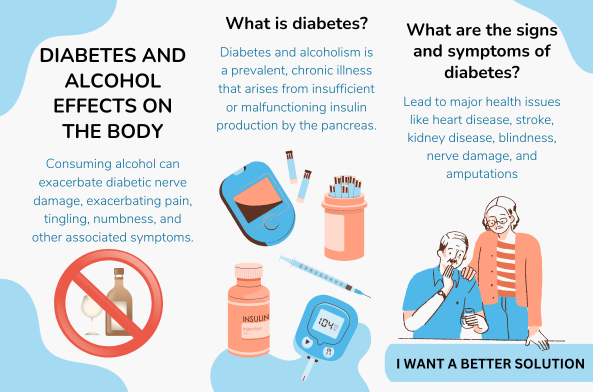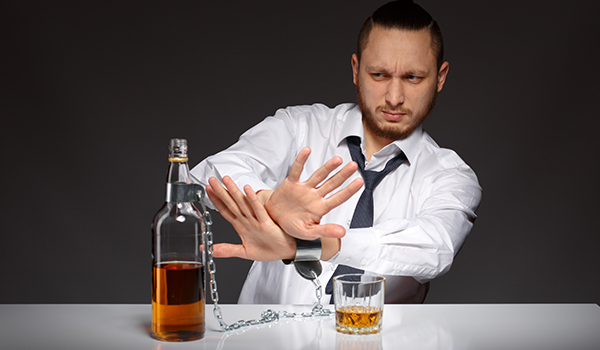Diabetes and alcoholism is a prevalent, chronic illness that arises from insufficient or malfunctioning insulin production by the pancreas. Insulin is a hormone that facilitates the uptake of glucose into cells for energy production from the bloodstream. When you have diabetes, glucose accumulates in the blood rather than entering your cells because your body is unable to properly utilize it.
Diabetes is a manageable condition. However, if left untreated, it can lead to major health issues like heart disease, stroke, kidney disease, blindness, nerve damage, and amputations.
There are two types of Diabetes
Type 1 : Diabetes arises when the pancreatic cells that produce insulin are destroyed, making it impossible for the body to produce enough of the hormone. Most people with this kind of diabetes are diagnosed before they turn 40. Least common type of diabetes – only 10% of all cases is type 1.
Type 2 : Diabetes arises from either the body becoming less sensitive to insulin or the body producing too little of it. People are overweight and inactive. People with lots of fat around the abdomen have a greater risk of developing type 2 diabetes.
Individuals with diabetes receiving insulin therapy may experience unusually low blood sugar levels. We call this hypoglycemia.
Hypoglycemia can cause slurred speech, headaches, dizziness, double vision, and unusual discomfort.
Diabetes and alcohol effects on the body
Diabetes and Alcohol can have an adverse effect on a person because alcohol has a tendency to increase blood sugar level in the blood. Because heavy drinking inhibits the liver’s ability to produce glucose when consumed on an empty stomach, heavy drinking can also raise the risk of hypoglycemia.
Consuming alcohol can exacerbate diabetic nerve damage, exacerbating pain, tingling, numbness, and other associated symptoms.
If you do decide to drink, do it in moderation. No more than two servings should be consumed daily by men with diabetes. The kind of alcohol you choose to consume will determine how it affects your health. Drinks vary greatly in how they impact your body if you have diabetes. The way that different people react to alcohol varies as well.
The liver needs one to one and a half hours to process each alcoholic beverage. Numerous alcoholic beverages, including wine, beer, and mixed drinks, are high in carbohydrates, which causes your blood sugar to rise rapidly.

The best alcoholic drinks for diabetes include:
Light beer and dry wines. Compared to other alcoholic drinks, these drinks are lower in calories and carbs.
Liquor neat, in a splash, or on the rocks.By skipping the mixer, you’re eliminating any additional calories or carbohydrates and limiting the effect your drink will have on your blood sugar.
Sugar-free mixers for mixed drinks. Try diet tonic, lemon or lime juice, club soda or seltzer. These mixers will not raise your blood sugar.
Things to Remember
If you use insulin to lower your blood sugar while you’re drinking, exercise extreme caution and conservatism. Regularly check your blood sugar levels.
When you drink alcohol, have a carbohydrate-rich meal or snack.
Remember to keep glucose tabs or other fast-acting glucose with you at all times.
Consider going to bed with a blood sugar higher than normal if you’ve been drinking. Keep in mind that the drop in Blood Glucose is often delayed and you’ll want to keep it extra safe when sleeping.
Drinking alcohol can obscure the signs of low blood sugar. Regularly check your blood sugar. Check more frequently than you believe is necessary.
To ensure that drinking alcohol is safe for you, consult your doctor before doing so. Recognize the components of the drinks you drink.

